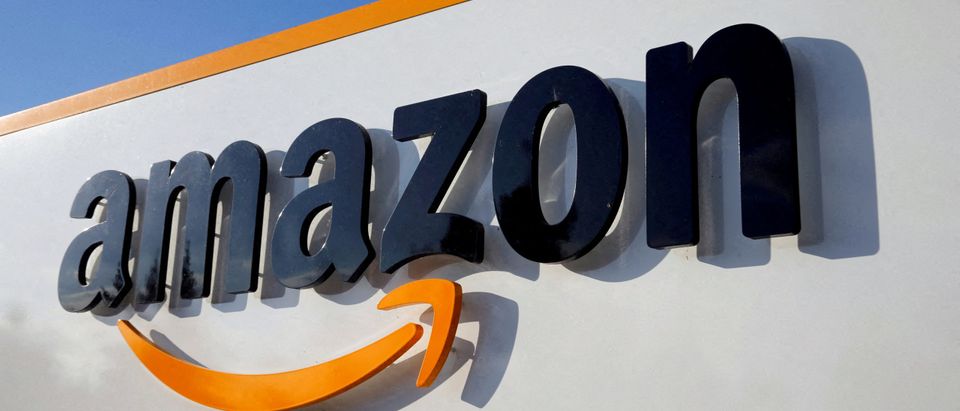The Amazon of old got its start by selling books. Today’s Amazon bans books by conservatives.
But whenever Amazon or any Big Tech company gets hit with an antitrust lawsuit, conservative and libertarian groups in D.C. will leap to their defense, arguing that the Big Tech companies who regularly censor half of their customers are only acting in the best interest of those same customers.
As an engineer who used to work for one of those companies, I’m not buying it.
The moment you so much as whisper a criticism of Amazon, D.C. libertarians will tell you that if you don’t like Amazon, you should “build your own Amazon.” As an engineer, I would be the first to tell you that building your own Amazon is not as easy as brewing your own beer if you don’t like Bud Light. But what if you actually did build your own Amazon? Once you explore that scenario, the Federal Trade Commission’s (FTC) antitrust lawsuit against Amazon starts to make a lot of sense.
Let’s pretend some young conservatives abandoned their aspirations to become conservative “influencers” who tweet about Big Tech censorship, and instead decided to become engineers.
While the Big Tech companies focused on “diversity, equity and inclusion” (I speak from firsthand experience), our heroes were obsessed with customers. As a result, they built an e-commerce store — let’s call it “Parana,” after another South American river — that offers the same essential services as Amazon at the same level of quality, but with lower fees for sellers. In fact, Parana attracted not just conservatives who were wary of Big Tech censorship, but sellers of all political persuasions who were tired of Amazon’s exorbitant fees and hard-nosed tactics.
One day, however, they realized that even though Parana has lower seller fees than Amazon, sellers are still offering the same prices on Parana and Amazon. Confused, they call one of those sellers. The seller explains that Amazon will punish them if they offer lower prices on Parana. And while they love Parana, at the same time, they cannot afford to tank their sales on Amazon, either.
In the real world, Amazon actually does this when sellers offer lower prices elsewhere; it’s essentially a system of price controls. As the lawsuit notes, Amazon set up a price surveillance network, punishing sellers algorithmically when the network caught them offering lower prices elsewhere.
Instead of going broke when it goes woke, Amazon can use “bespoke” price controls to ensure that it wins, even when it should lose in a free market.
Returning to the fictional world of Parana, another important part of e-commerce is fulfillment: the logistical process of getting a product from the factory floor to the hands of the customer. As sellers also grew frustrated with Fulfillment by Amazon (FBA), another group of engineers built a competitor, Araguaia (you guessed it, another river in Brazil). Not only did Araguaia outperform FBA, but it could also fulfill orders placed on both Amazon and Parana; FBA could only fulfill orders on Amazon.
Originally, many sellers planned to use Araguaia to fulfill all their orders, but they ran into a problem: they were delisted from Amazon Prime because they didn’t fulfill orders with FBA. And since they could not afford to lose Prime status, sellers had no choice but to switch back to FBA. But since FBA can only fulfill orders on Amazon, sellers now have to manage two fulfillment services: one for orders on Amazon, and another for orders on Parana.
In the real world, Amazon did create this tie between Amazon Prime and Fulfillment by Amazon. In an earlier era, Amazon offered Seller Fulfilled Prime, which let sellers fulfill Prime orders themselves or via independent fulfillment providers. Amazon even described Seller Fulfilled Prime as a win for everyone in their 2015 shareholder letter.
But once Seller Fulfilled Prime became a threat not to consumers, but to Amazon’s own fulfillment service, Amazon shut it down (with very limited exceptions). As the FTC noted, forcing sellers to use Fulfillment by Amazon for Prime orders was not necessary to meet Amazon’s bar for quality. The evidence they had to back this assertion was Amazon’s own internal analyses.
Frequently, defenders of Amazon will write fluff pieces, invoking terms such as choice, liberty, or the consumer welfare standard and listing all the good things Amazon does, as if that entitles Amazon to a “get out of jail free” card that lets it violate antitrust laws. When we get down to the brass tacks of what would happen if you did build your own Amazon, though, it becomes clear that Amazon wants to operate in a rigged market, not a free market.
Mike Wacker is a software engineer and technologist who has previously served as tech fellow in Congress. Follow him on X.com at @m_wacker.
The views and opinions expressed in this commentary are those of the author and do not reflect the official position of the Daily Caller.


